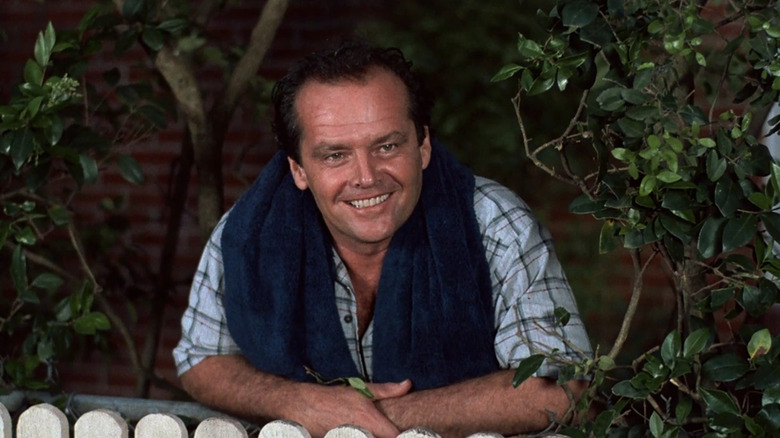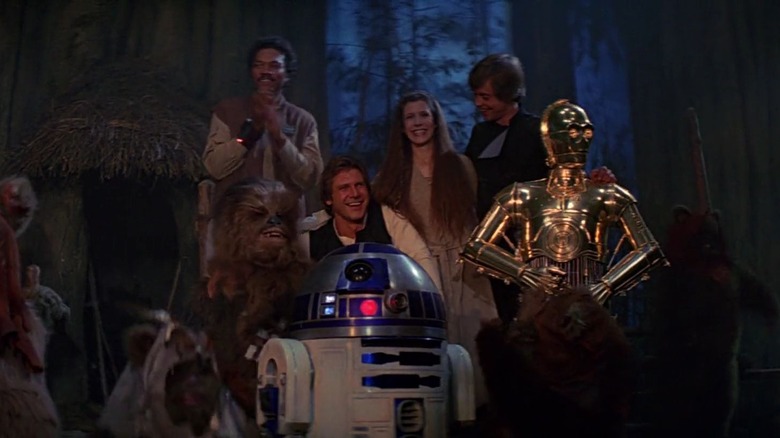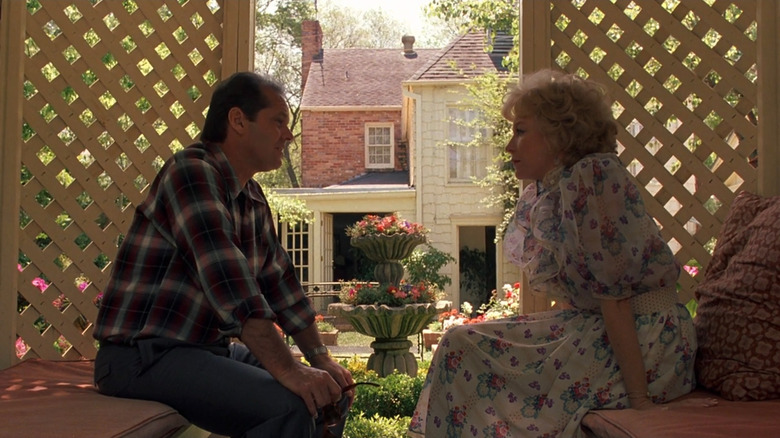
Few people have had a more successful feature directorial debut than James L. Brooks. Right out of the gate, he won Best Picture, Best Director, and Best Original Screenplay and has the second highest grossing film of 1983, only behind a little film called "Return of the Jedi." This was a man who had already conquered the world of television comedy, co-creating "The Mary Tyler Moore Show," all of its spinoffs, and "Taxi" ("The Simpsons" would come later), and in his transition to film, he looked to be conquering that as well.
"Terms of Endearment" has a bit of a reputation as the ultimate example of a cinematic weepy, but people are really only thinking about the final half-hour when they say that. The film as a whole is humanist filmmaking of the highest order, creating a cast of characters that are all messy and funny that you come to care about deeply. The reason you are sitting in a puddle of your own emotions at the end of "Terms of Endearment" isn't out of some cheap manipulation. Every single tear is completely earned.
This film also marked the beginning of the long collaboration Brooks had with Jack Nicholson, who appeared in four of his six features and won two Oscars for his performances in them. Nicholson plays a womanizing retired astronaut who starts up a relationship with his next door neighbor (Shirley MacLaine, who also won an Oscar for her performance). This middle-aged romance lets Nicholson step away from the usual explosive work he does on screen for something emotionally vulnerable and openhearted. He understood that this was a rare opportunity and hoped that the film's success would signal that Hollywood would be able to carve out a space for emotional, human films in the 1980s. That didn't really happen.
The End Of The New Hollywood

By the time 1983 rolled around, the exciting, innovative stretch of auteur-driven filmmaking was firmly over. We were now in the age where Hollywood shifted its primary focus to capture the attention of younger audiences. You had science-fiction, fantasy, and action-adventure films that were once thought to be the fodder for B-movies elevated to the mainstream and dominating the marketplace. Along with this, you had the rise of franchise filmmaking, with "Star Wars" being the poster child for both. The 1980s, in many ways, were the precursor to today's Hollywood, and the major difference on how people perceive the two is that the '80s get a nostalgic bump.
While we know this to be the prevalent mainstream cinematic output of the era, this could be perceived as just a phase at the time. Hollywood was only a couple of years into its post-New Hollywood era, and plenty of people had reason to believe that this youth and genre focused bubble would eventually pop. With "Terms of Endearment" making over $100 million in 1983, some saw that as a sign that maybe the adult drama wasn't dead. One of those people was Jack Nicholson, who was one of the staples of the New Hollywood. Now, he didn't think that film could bring about a New Hollywood 2.0. "Terms of Endearment" isn't that kind of transgressive, boundary pushing movie. Instead, Nicholson thought it could have been the beginning of a resurgence of a different era of Hollywood history.
Hoping For A New 1940s Hollywood

"Terms of Endearment" definitely is a modern film that deals with modern issues (at least 1983 modern), but in its tone and construction, it's an extremely classical, character-based drama. It comes from a place that believes that you will be invested in the story because it is about human beings. It's not there for thrills or awe. James L. Brooks wants to move you, and that is what Jack Nicholson found so compelling about it. He connected with the old school empathy of the piece and thought that its success would bring about a whole slew of emotional human dramas. Speaking with Gene Siskel of the Chicago Tribune back in 1985, two years after the film's release, Nicholson lamented that "Terms of Endearment" wasn't seen as the start of a new filmmaking phase:
"I'm surprised 'Terms' hasn't become more of a trend-setter. I'm surprised '40s films aren't more of an industry fashion now. I thought what was going to gain amplitude was emotion, and the '40s film really had emotion."
It makes sense that the film's success, paired with the domination of the blatantly emotional "E.T. the Extra-Terrestrial" the year before, that Hollywood would embrace reaching into the audience's hearts. However, broadly speaking, teenagers and kids want to think things are cool, and being emotionally open and crying in a cinema are anything but cool. That is who Hollywood was courting at the time, and the studios took their cues from them. They doubled down on power fantasies. Look at the box office of 1985, when that interview took place, and you'll find two of the top five grossing films are action oriented sequels starring Sylvester Stallone. I would've liked the world Jack Nicholson envisioned after "Terms of Endearment," but we didn't get it.
Read this next: The 14 Greatest '80s Romantic Comedies Ranked
The post Jack Nicholson Was Surprised That Terms Of Endearment Didn't Become A 'Trend-Setter' appeared first on /Film.
0 Commentaires